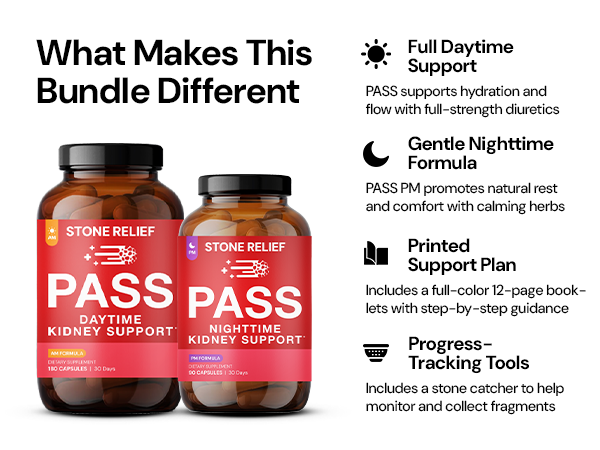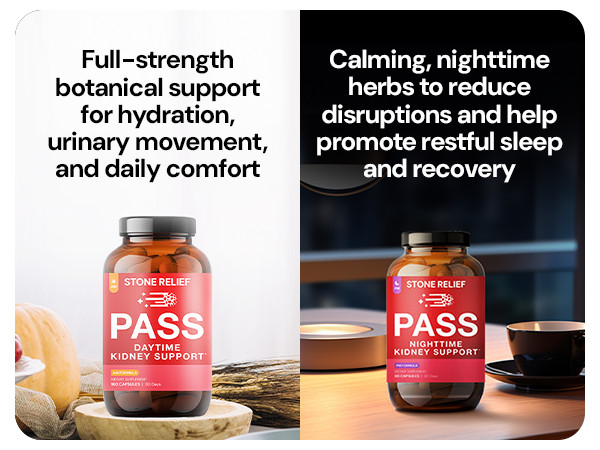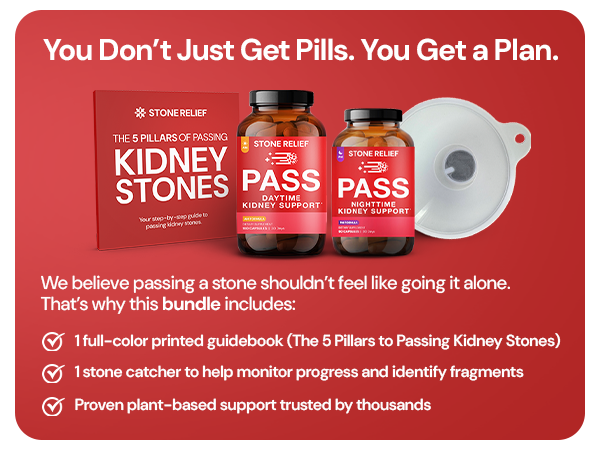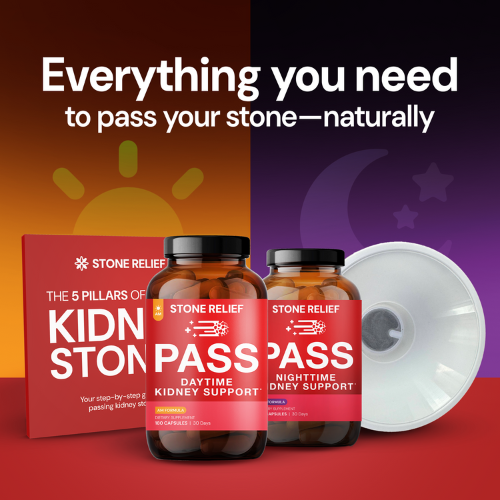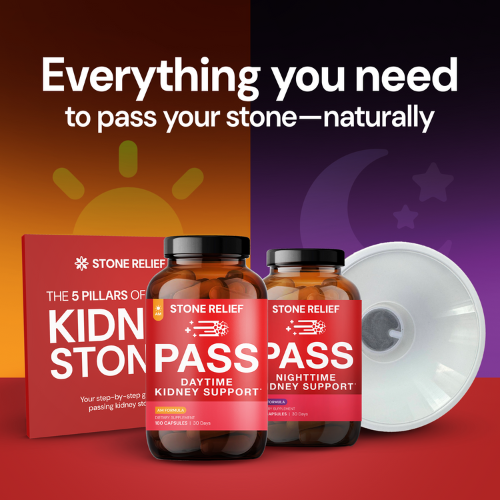NSAIDs for Kidney Stone Pain: What You Should Know
Using NSAIDs for kidney stone pain may seem like an obvious choice—but there’s more to the story. In this post, I dive into how NSAIDs actually work, what risks they carry, and why long-term use can harm your kidneys. I also explore safer over-the-counter and natural alternatives that provide effective relief without the serious side effects. This information could make all the difference during your next kidney stone episode.
Key Takeaways:
-
NSAIDs reduce kidney stone pain by restricting blood flow, but this can harm kidney function.
-
Up to 20% of users may experience kidney function abnormalities.
-
Natural options like Chanca Piedra offer pain relief without harsh side effects.
-
NSAIDs may be safe for short-term use, but risk increases with prolonged use.
Let’s talk about a big topic in the kidney stone world—NSAIDs. These drugs are prescribed all the time for kidney stone pain. You’ve probably taken one before without even thinking about it.
But as someone who’s spent years studying the effects of kidney stones and treatments, I’ve come to see NSAIDs as a double-edged sword.
What Are NSAIDs, Really?
NSAIDs stand for nonsteroidal anti-inflammatory drugs. You probably know them by their brand names—ibuprofen (Advil, Motrin), naproxen (Aleve), and aspirin. Their goal is to reduce inflammation, pain, and fever—without using steroids.
They’re convenient, easy to get, and widely used for everything from headaches to joint pain to—you guessed it—kidney stones.
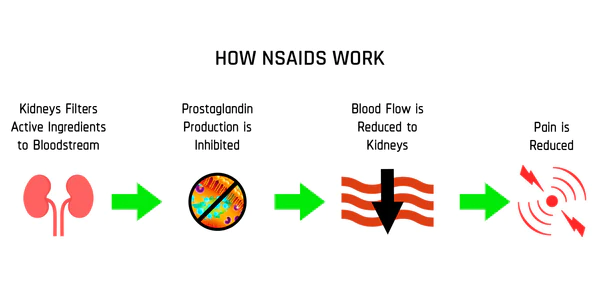
How NSAIDs Work
When you take an NSAID, here’s what happens inside your body:
First, the drug is absorbed and processed through your kidneys. From there, it enters your bloodstream. Its main job? Block the production of prostaglandins—local hormone-like chemicals that trigger inflammation and widen blood vessels.
By blocking prostaglandins, NSAIDs reduce inflammation. But in the kidneys, this also reduces blood flow. And that’s how pain relief happens—less blood, fewer pain signals.
But Here’s the Problem
That drop in blood flow doesn’t just reduce pain. It limits oxygen and nutrient delivery to the kidneys. And over time, that’s where things start to go south.
🛒 Check Price & Purchase Stone Relief Pass AM/PM Bundle on Amazon
What the Research Says About NSAIDs and Kidney Health
Studies show that up to 20% of people who use NSAIDs experience abnormal kidney function. And that’s not just in people with existing kidney disease.
Some of the specific risks include:
Fluid retention and electrolyte imbalances
NSAIDs can disrupt your body’s water balance and essential minerals, which affects everything from hydration to nerve function.
Acute deterioration of kidney function
Your kidneys lose their ability to effectively filter waste and regulate fluids.
Nephrotic syndrome and interstitial nephritis
These sound technical, but they basically mean too much protein in the urine and inflammation within the kidney’s filtering structures.
Papillary necrosis
This is serious—death of the tissues where urine drains into the ureters. Yes, actual tissue death.
Renal failure
Multiple studies show people who take NSAIDs for as little as three to ten days begin showing signs of kidney failure. Even moderate use adds up fast—especially if you’re already dehydrated or dealing with stone-related inflammation.
And the worst part? There are no warning signs.
You won’t feel it happening. That’s what makes NSAIDs so risky.
Can Your Kidneys Recover?
Yes. The good news is that most of the damage caused by NSAIDs is reversible. If you stop taking them early enough, your kidney function can return to normal within a few weeks or months.
But for many people, by the time they realize something’s wrong, the damage is already done.
🛒 Check Price & Purchase Stone Relief Pass AM/PM Bundle on Amazon
Exploring Alternatives to NSAIDs for Kidney Stone Pain
So what are your options if you’re in pain from a kidney stone and don’t want to risk your kidney health?
Here’s what I recommend based on my research and personal experience.
1. Acetaminophen (Tylenol)
This is the next most common over-the-counter option. It’s not anti-inflammatory, but it can reduce mild to moderate pain.
That said, it’s not great for kidney stone pain. Most people don’t find it strong enough. And long-term use can harm your liver, especially if taken in high doses.
2. Opioids and Narcotics
Drugs like Tramadol or hydrocodone are highly effective at reducing pain. But they come with major downsides—addiction, nausea, weak pulse, seizures, and more.
They should only be used under close medical supervision and for short-term relief. And if you’re on an antidepressant? Avoid Tramadol. The risk of seizures skyrockets.
3. Natural Remedies—Especially Chanca Piedra
This is where I get excited. One of the best natural pain relievers I’ve found is Chanca Piedra, and it’s the core ingredient in our product CLEANSE.
Studies out of South America found that Chanca Piedra is:
2 to 3 times more potent than morphine
7 times more effective than acetaminophen
It’s mind-blowing. And unlike every other option I’ve mentioned, the side effects are almost non-existent. The only complaint some people have is mild stomach upset—which usually goes away if you take it with food.
That’s it.
Why I Recommend Chanca Piedra First
Let me be clear: I’m not saying NSAIDs don’t work. They do.
But when you compare their risks—renal failure, protein loss, inflammation, and even tissue death—to something that’s more effective and almost completely safe, the choice seems obvious.
And let’s not forget the goal here. When you’re trying to pass a kidney stone, you need more than just pain relief. You need:
Less inflammation
Better urine flow
Lower risk of damage
A way to actually get the stone out faster
That’s why I built CLEANSE around Chanca Piedra. It checks all those boxes—and keeps your kidneys healthy in the process.
🛒 Check Price & Purchase Stone Relief Pass AM/PM Bundle on Amazon
Use NSAIDs Cautiously—Or Not At All
If you’ve taken NSAIDs for kidney stone pain, don’t panic. A few days won’t likely cause permanent damage.
But if you’ve been using them for weeks, or plan to during a long stone episode, it’s time to rethink the strategy. There are better, safer ways to manage pain.
Kidney stone pain is brutal—I know. But your kidneys are too important to gamble with.
Stay safe. Stay informed. And take care of your kidneys.

